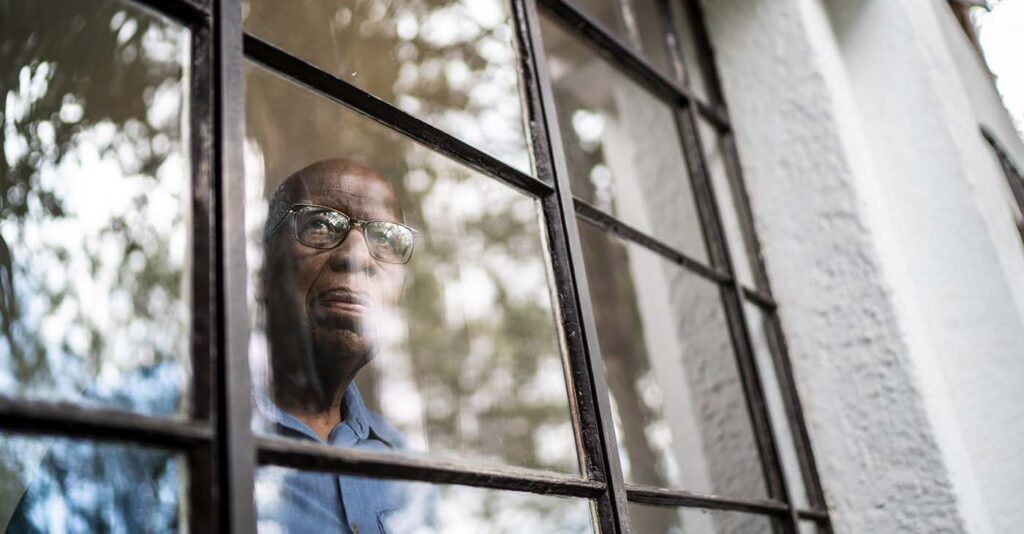By Stacy M. Brown
NNPA Senior National
Correspondent
A recent study by the Pew Research Center reveals deep-seated mistrust among Black Americans toward U.S. institutions, highlighting concerns that these institutions intentionally or negligently harm Black people. Conducted from September 12 to 24, 2023, the survey of 4,736 Black adults sheds light on the extent of these beliefs and their roots in personal experiences of racial discrimination.
The findings are striking: 76% of Black adults believe Black public officials are discredited more frequently than their white counterparts. Similarly, 76% feel that the police do little to stop guns and drugs from flooding Black communities, and 74% think Black people are more likely to be incarcerated because prisons profit from their imprisonment. Additionally, 67% say businesses target Black people with luxury product marketing to push them into debt.
Health care and government policies are also viewed with deep suspicion. About 55% of Black adults believe that nonconsensual medical experiments, similar to the infamous Tuskegee study, are happening today. Another 55% think the government encourages single motherhood to eliminate Black men from families. Moreover, 51% suspect the government promotes birth control and abortion to reduce the Black population.

Personal experiences of racial discrimination significantly influence these beliefs. A substantial 75% of Black adults report experiencing racial discrimination, with 13% facing it regularly and 62% from time to time. These experiences reinforce the perception that the system is designed to thwart their success, making Black people feel they must work harder to achieve their goals.
The survey shows that the belief in institutional harm is pervasive across different demographics within the Black community. For instance, 74% of Black adults see the prison system as designed to hold them back, a sentiment echoed by 70% regarding the judicial process and 68% about policing. Those who have faced racial discrimination are particularly likely to hold these views.
Ethnicity within the Black community also affects perceptions. While 75% of non-Hispanic and 72% of multiracial Black adults see the prison system as oppressive, only 60% of Hispanic Black adults agree. Additionally, 67% of Black Americans believe the political system is designed to hold them back, with higher agreement among those who have experienced discrimination.
Economic perceptions are similarly grim, with 65% saying the U.S. financial system is designed to hold Black people back, either significantly or somewhat. Media representation also draws criticism; 88% of Black Americans frequently encounter inaccurate news about Black people, prompting many to fact-check information themselves.
The survey’s findings are mirrored in focus group discussions, where participants voiced their frustrations and fears. One participant in her early 50s stated, “I believe there are strategic works behind the scenes that are being done to sabotage a Black person’s effort. You could be on the road to success with nothing stopping you. But then, all it takes is one incident that was planned and plotted against you to destroy your life.” Another young adult in her late 20s said, “As Black people, we are always fighting some type of fight. We always get to some height of success. And then there’s always something that takes us down.”
Participants also highlighted the subtle yet pervasive nature of institutionalized barriers. A high-income group participant in his late 30s remarked, “There’s institutionalized stuff that is invisible. There are things like that which I think are purposely built into society or industries to keep certain numbers down because of access to financial gain.”
Reflecting on the systemic nature of these barriers, a Republican group participant in his late 30s said, “This is a capitalistic society. And I feel as though Black men just have to be the ones at the bottom in order for this system to succeed. We can even go back to Black Wall Street, where we were starting to have a little bit of success, and then that was taken down by the powers that be.”
The Pew study underscores the pervasive mistrust Black Americans have toward U.S. institutions, a mistrust rooted in both historical and ongoing experiences of racial discrimination. One participant poignantly summarized, “We always get to some height of success, and then there’s always something that takes us down.”




